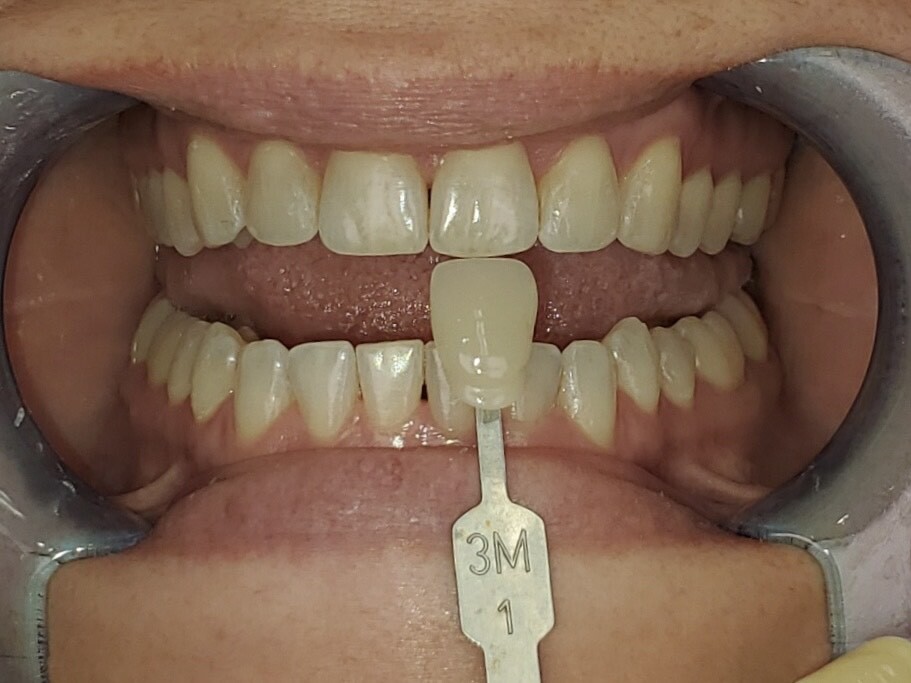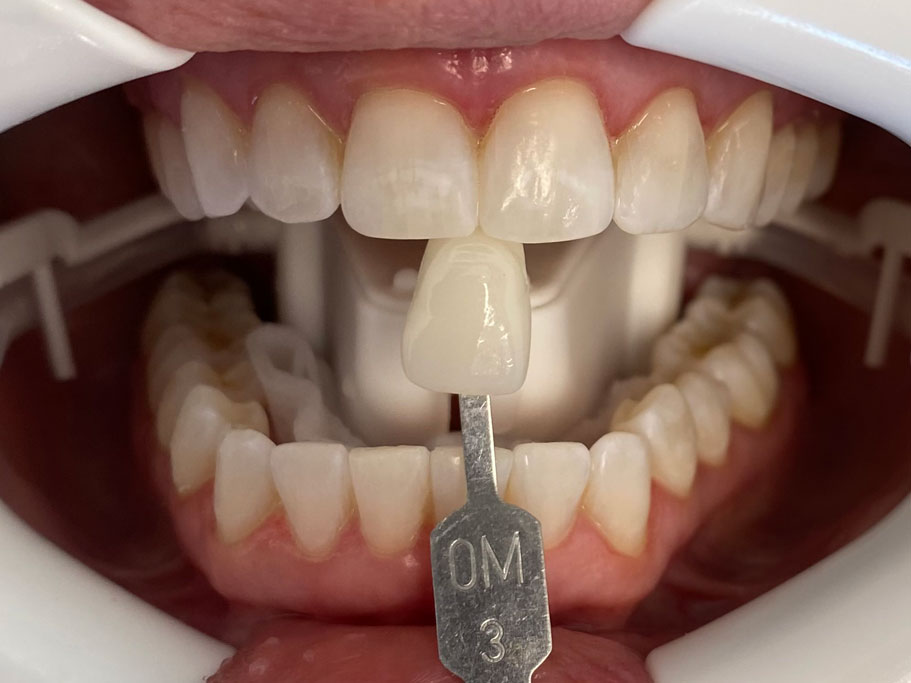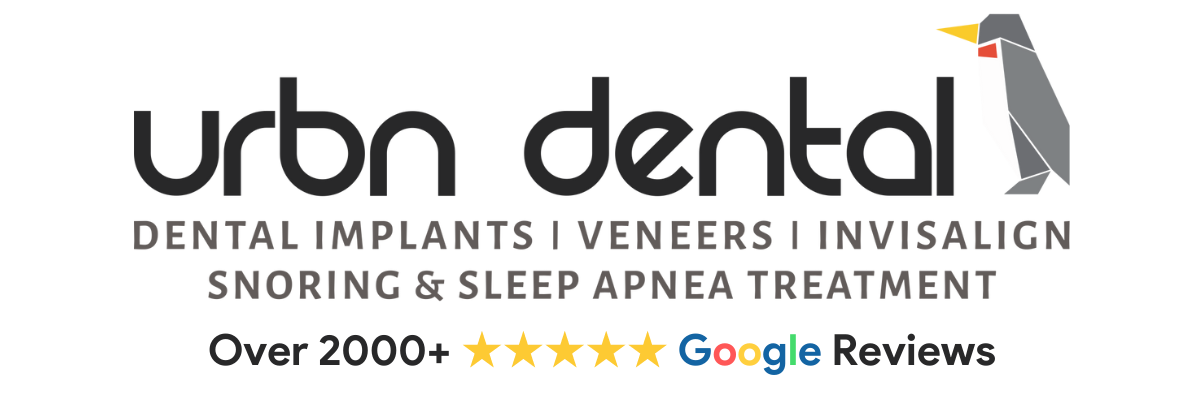In-Office Teeth Whitening
In-office teeth whitening is also called tooth bleaching if it requires the use of a bleaching product. It is the restoration of the natural tooth shade with the whitening which is beyond the natural shade.
When Is In-Office Teeth Whitening Required?
In-office teeth whitening is also called tooth bleaching because it requires the use of a bleaching product. The agent uses an oxidizing process to increase the value shade of your teeth.
This process of showcasing the natural shade of the tooth can be achieved through the removal of surface staining which has been caused by extrinsic factors like smoking, drinking sodas, red wine, coffee, and tea. The build-up of tartar and calculus can also increase the teeth staining which is why dental cleaning is always recommended first. The restoration of natural tooth shade may be achieved through having teeth cleaned in the dental office which is also called polishing and scaling. The tartar and calculus can be removed easily with the help of professional dental cleaning.
Bleaching to whiten a natural shade is a common procedure done in cosmetic dentistry. There are many whitening options available to use professionally in the dental office as well as products marketed to use at home. These include but not limited to: bleaching pens, bleaching strips, laser tooth whitening and bleaching gels. Bleaching solutions may also include carbamide peroxide or hydrogen peroxide. There are some side effects which are associated with bleaching which includes increased sensitivity and possible irritation around the gums.
Tooth Discoloration and Tooth Staining
Teeth may turn dark if there is too much build up on the external surface, which then discolors the natural tooth color. Additionally, the tooth itself can discolor internally which is called intrinsic staining.
Extrinsic Discoloration
The extrinsic stains may internalize because cracks or enamel defects can allow the staining to seep internally. It can also be the results of discolored dentin that is showing through the enamel. Other causes of extrinsic staining may include:
- Dental plaque: even if it is not visible when it is at the tooth surface, the plaque can be stained through chromogenic bacteria like actinomyces species.
- Calculus or tartar: if there is neglected plaque, it can calcify afterward and it can lead to the formation of the hard deposit on the teeth and mostly on the gum line. The calculus may vary in color like brown, black, yellow or grey.

- Tobacco: tobacco products produce tar and it is also found in the smokeless tobacco. The tar tends to form yellow, black or brown stains on the neck of a tooth, just over the gum line.
- Chewing of betel
- Some drinks and foods such as vegetables and other food products are rich in the xanthonoids and carotenoids which stain the teeth. The liquids that are colored such as red wine, tea, coffee, and cola also can cause the discoloration.
- Some medication such as antiseptic mouthwash will bind to the tannins which mean that it can stain the teeth with a prolonged use.


Come to URBN Dental and discover why in-office teeth whitening is right for you!
Advantages of In-Office Teeth Whitening
The advantage of using In office teeth whitening is to get faster results, and it is one of the safest methods available. The tooth sensitivity can be more easily controlled since the dentist uses peroxide gels that don’t soak too deep into the teeth as with the older generation gels.
The disadvantages of in-office teeth whitening are:
- It costs more compared to home options such as bleaching strips and trays.
- The results sometimes are not predictable according to heredity and age or staining type on the tooth.
- In office teeth whitening cannot last forever. After the procedure, then the teeth will start accumulating the stains again. Some dentists will recommend at-home maintenance follow up with lower percentage bleach that may be kept over the teeth for longer period.
The right stains to be removed by a professional cleaning
- Aging: as the time passes, teeth can be darkened because of grey, green, brown, yellow cast. The yellowed teeth are capable to whiten at once.
- Consumption of some foods like dark colored fruits and vegetables, soda, red wine or coffee.
- Tobacco use
The stains that can resist In office Teeth whitening
- Teeth that have stain especially these which are not organic. They may fail to respond well to the treatment. Such teeth can look darker if the surrounding teeth are whitened
- Trauma that had caused dentin to become dark
- Using the tetracycline antibiotics which is ingested when the tooth are growing. The drug may bind chemically on crystalline structure on the underlying dentin or the enamel of the tooth
- The overexposure of fluoride that may lead to fluorosis and this can discolor the tooth.
The options of in-office tooth whitening
The dentist near me will start by examining a patient and will take his dental and health history which include sensitivities and allergies. He or she should take time to observe soft and hard tissues, the condition or placement restoration. Sometime the doctor may require the use of x-rays in order to determine the depth and the nature of irregularities.
Whitening shade guide will be used in order to measure the tooth color. Such shades will determine how effective the procedure was by comparing the before and after shades. The procedure will require the use of light-cured protective layer and is painted carefully on the papilla or gums which will reduce the risk of suffering soft tissues and chemical burns. Your dentist at URBN Dental will evaluate your smile first and make highly recommended recommendation that is best for you.
What is KöR Teeth Whitening?
Teeth whitening can often be really frustrating and unpredictable. While most teeth whitening solutions do work, there’s a certain disconnect between expectations and reality. Furthermore, the practice of teeth whitening has traditionally been unpredictable, making it hard to guarantee exact results. That’s where KöR teeth whitening comes in.
KöR teeth whitening is the most advanced method of teeth whitening that uses completely potent whitening gels that are chemically modified to include a high degree of free radicals — as opposed to plain oxygen and water. Using this compound, the whitening gel is allowed to thoroughly diffuse along the microstructure of the teeth to provide the most stunning and brilliantly white results. Furthermore, traditional whitening gels have been ineffective because they are only active for up to 30 minutes. Saliva can destroy up to 29mg of peroxide in a single minute, so you need an extremely high quantity of whitening gel and expertise of emergency dentists to make it sustain saliva contamination and still persist.


Get the smile you’ve always wanted!
Schedule your In office teeth whitening appointment today.
One of highly recommended parts of KöR teeth whitening is that it doesn’t use any lights or lasers and there’s absolutely no risk of side effects or complications. If you want a completely reliable KöR teeth whitening service, then schedule an appointment at URBN dental right now.











